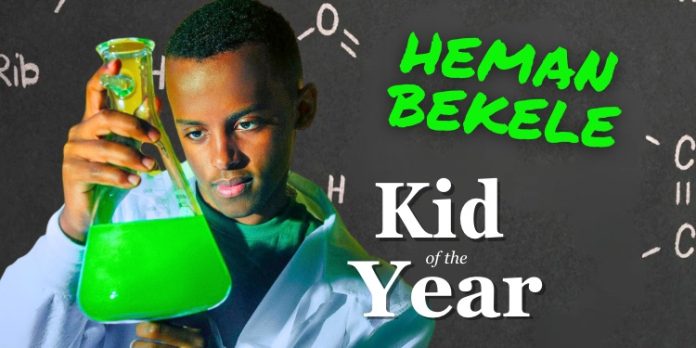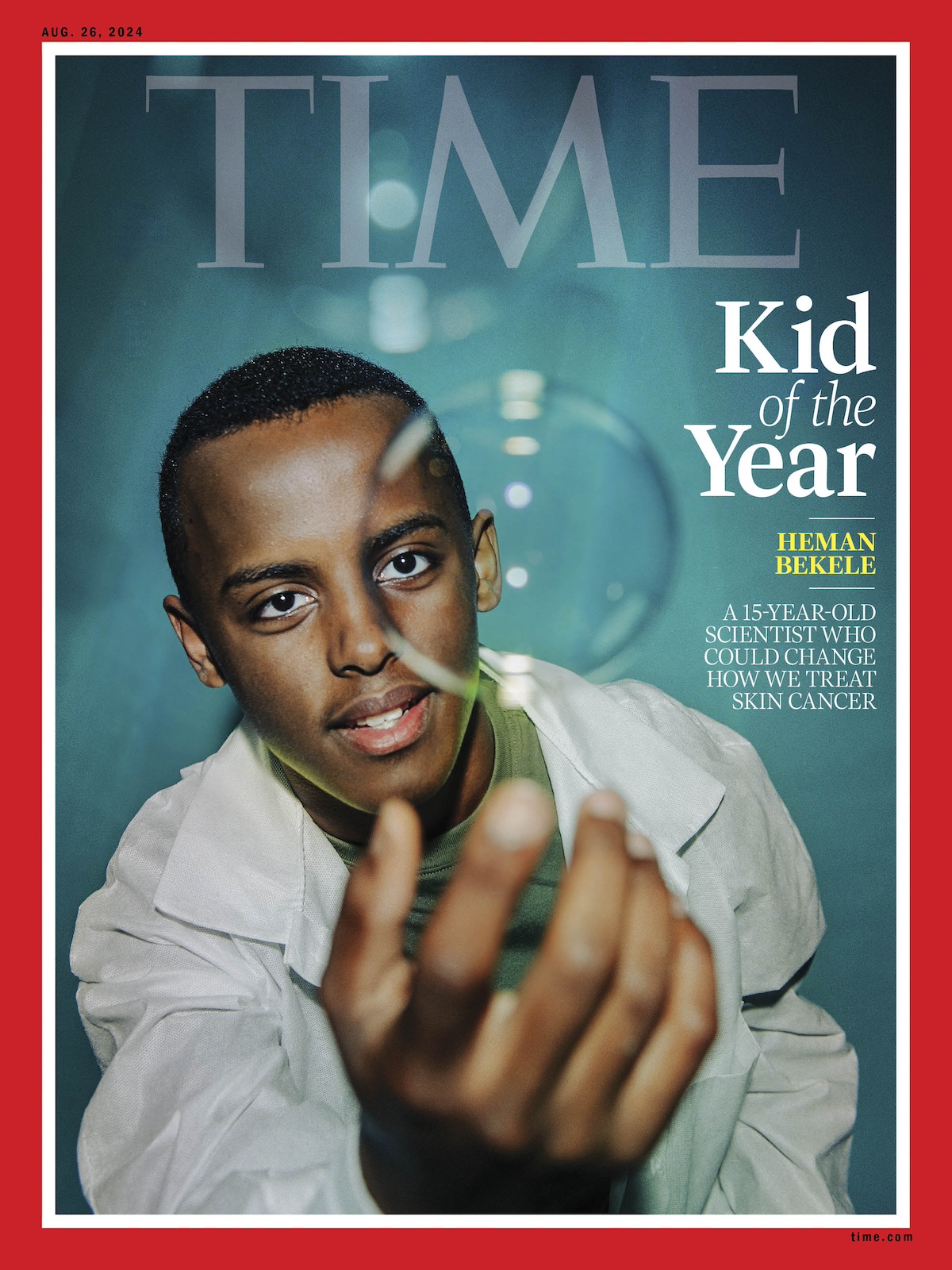Meet Heman Bekele, the 15-Year-Old Innovator Revolutionizing Skin Cancer Treatment
At just 15 years old, Heman Bekele has already made a remarkable impact in the world of science. Recently named the 2024 Kid of the Year by Time magazine, this young scientist from Annandale, Virginia, is gaining recognition for his groundbreaking work in skin cancer treatment—specifically, a soap that could one day revolutionize how melanoma is treated.
Bekele’s journey to this prestigious honor began in 2023, when he was named America’s Top Young Scientist after winning the Young Scientist Challenge, a competition hosted by 3M and Discovery Education. His innovative creation? A compound-based soap bar designed to treat melanoma, a dangerous form of skin cancer that develops when the cells that produce skin pigment become cancerous. What’s even more impressive is that Bekele has developed a cost-effective method to produce these soap bars, with each one costing about 50 cents to make.
“It’s absolutely incredible to think that one day my bar of soap will be able to make a direct impact on somebody else’s life,” Bekele told Time magazine. “That’s the reason I started this all in the first place.”
A Passion for Science Born in Ethiopia
Bekele’s passion for science and skin cancer treatment began at an early age. Growing up in Ethiopia, he frequently saw the devastating effects of prolonged sun exposure on those in his community who didn’t have access to proper sun protection. After moving to the United States with his family, Bekele became determined to find a cure for melanoma, focusing on creating an accessible treatment for low-income communities.
Through extensive research, Bekele discovered the potential of imiquimod, a topical cream used to treat superficial basal cell carcinoma, a common type of skin cancer. His innovative soap bar incorporates nanoparticles “loaded” with imiquimod, ensuring that the drug remains on the skin at a molecular level even after the soap is rinsed off. “Almost everyone uses soap and water for cleaning. So soap would probably be the best option,” Bekele explained.
The Potential to Save Lives
Scientists and experts in skin cancer research have recognized the potential of Bekele’s soap, noting that it could offer a significantly cheaper alternative to current treatments, which can cost upwards of $40,000. Although the soap is still in the early stages of development and requires further testing before it can be approved for use, Bekele is already expanding his research at Johns Hopkins Bloomberg School of Public Health in Baltimore.
Understanding Melanoma’s Impact on the Black Community
While melanoma is less common among Black individuals compared to non-Hispanic Whites, those who do develop the disease face significantly lower survival rates. The five-year survival rate for Black melanoma patients is 66%, compared to 90% for non-Hispanic White patients. This stark disparity underscores the importance of Bekele’s work in developing an affordable, accessible treatment that could potentially improve outcomes for all patients, regardless of race or socioeconomic status.
Heman Bekele’s story is a powerful reminder that age is no barrier to making a difference in the world. His dedication to science and his innovative approach to solving a critical health issue have already earned him national recognition—and the potential to change countless lives.









